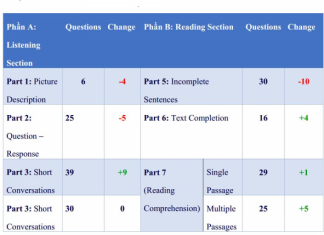- Reshaping the Continent: Current affairs, nigeria news, and the economic forces driving a nation forward.
- Economic Transformation and Diversification
- Fintech and the Rise of Digital Economies
- Agricultural Resilience and Food Security
- Political Landscape and Governance Reform
- Decentralization and Local Governance
- Security Challenges and Regional Stability
- Social Development and Human Capital
Reshaping the Continent: Current affairs, nigeria news, and the economic forces driving a nation forward.
Nigeria, a nation brimming with potential and facing multifaceted challenges, consistently draws international attention. Understanding the current affairs in nigeria news requires a nuanced perspective, moving beyond simplistic narratives and delving into the intricate interplay of economic forces, political dynamics, and social transformations. This article aims to provide a comprehensive overview of the key developments reshaping the continent’s most populous country, examining its economic trajectory, the evolving political landscape, and the impact of these changes on the lives of ordinary citizens.
The nation’s journey is marked by significant opportunities and persistent hurdles. From its abundant natural resources to its vibrant entrepreneurial spirit, Nigeria possesses the ingredients for sustained growth and development. However, issues such as corruption, security concerns, and infrastructure deficits continue to pose significant obstacles. Navigating these complexities is crucial for unlocking Nigeria’s full potential and securing a prosperous future for its people, making informed analysis of unfolding events vital for stakeholders across the globe.
Economic Transformation and Diversification
Nigeria’s economy, historically heavily reliant on oil revenues, is undergoing a slow but noticeable process of diversification. While the oil sector remains dominant, there is a growing emphasis on developing other sectors, including agriculture, manufacturing, and technology. Initiatives aimed at improving the business environment, attracting foreign investment, and promoting entrepreneurship are gaining momentum. However, these efforts face challenges such as inadequate infrastructure, limited access to finance, and bureaucratic hurdles.
The potential for economic growth in Nigeria is vast, given its large population, its strategic location, and its abundant natural resources. Successful diversification demands sustained investment in education, infrastructure, and human capital development, alongside robust governance and a commitment to tackling corruption. Ongoing reforms and liberalization policies are pivotal to attracting foreign investment and fostering a more competitive economic environment.
| Oil and Gas | 40% | -12% |
| Agriculture | 22% | 4.5% |
| Manufacturing | 10% | 3% |
| Services | 28% | 5.2% |
Fintech and the Rise of Digital Economies
The financial technology (Fintech) sector is witnessing a period of remarkable growth in Nigeria. Driven by a large unbanked population and increasing mobile penetration, innovative Fintech companies are revolutionizing access to financial services. Mobile money platforms, digital lending apps, and online payment gateways are transforming the way Nigerians manage their finances. This sector also fosters inclusivity, reaching underserved populations previously excluded from traditional banking systems. Furthermore, the growth of Fintech boosts entrepreneurship by providing access to funding and simplified financial tools.
However, regulatory challenges and security concerns present obstacles to the continued expansion of the Fintech sector. Establishing a clear and adaptive regulatory framework is crucial to fostering innovation while protecting consumers. Robust cybersecurity measures are also essential to safeguard digital transactions and maintain trust in these platforms. The future success of Fintech in Nigeria depends on collaborative efforts between innovators, policymakers, and financial institutions.
Agricultural Resilience and Food Security
Nigeria is striving to achieve greater agricultural self-sufficiency and enhance food security. Recognizing the sector’s potential to drive economic growth and reduce poverty, the government is implementing policies to support farmers, improve infrastructure, and promote sustainable agricultural practices. These programs aim to boost crop yields, enhance access to markets, and strengthen the agricultural value chain. Encouraging investment in modern agricultural technologies is critical for increasing efficiency and resilience.
Despite the initiatives, Nigeria’s agricultural sector continues to grapple with multifaceted challenges, including climate change, land degradation, and limited access to credit. Improving infrastructure, particularly rural roads and irrigation systems, is essential to support agricultural production and distribution. Addressing land tenure issues and promoting sustainable farming practices are vital for long-term agricultural sustainability. Effective policies and investment are pivotal to unlocking the full potential of Nigeria’s agricultural sector.
Political Landscape and Governance Reform
Nigeria’s political scene is marked by a complex interplay of party politics, regional interests, and ethnic identities. The country’s democratic institutions have undergone significant development since its transition to civilian rule in 1999, but challenges remain. Corruption, electoral irregularities, and insecurity continue to undermine public trust and hinder effective governance. Strengthening institutions, promoting transparency, and fostering a culture of accountability are essential for consolidating democracy.
Recent electoral reforms aim to enhance the credibility and transparency of the electoral process, but further improvements are needed. Addressing insecurity, particularly in the northern regions of the country, is a critical priority. Investing in education, healthcare, and infrastructure is vital to improve the quality of life for all Nigerians and foster inclusive growth. Sustained commitment to good governance and the rule of law are the cornerstones of a more stable and prosperous future.
- Strengthening Electoral Institutions
- Promoting Transparency and Accountability
- Addressing Insecurity Challenges
- Investing in Social Sectors
- Fostering Inclusive Governance
Decentralization and Local Governance
The debate surrounding decentralization and the strengthening of local governance structures is gaining traction in Nigeria. Proponents argue that greater devolution of power and resources to local governments would enhance accountability, promote citizen participation, and improve service delivery. However, concerns are also raised about the capacity of local governments to manage resources effectively and resist corruption. A nuanced approach to decentralization is required to address these concerns.
Establishing clear lines of responsibility, strengthening the financial autonomy of local governments, and investing in capacity building are crucial steps towards effective decentralization. Ensuring that local governance structures are responsive to the needs of their communities is essential for fostering inclusive development. The success of decentralization hinges on establishing robust mechanisms for accountability and promoting citizen participation in decision-making processes.
Security Challenges and Regional Stability
Nigeria faces significant security challenges, including terrorism, banditry, and communal clashes. The Boko Haram insurgency in the northeast has caused widespread devastation and displacement, while banditry in the northwest poses a growing threat to livelihoods and security. Addressing these security challenges requires a multi-faceted approach, including strengthening security forces, addressing the root causes of conflict, and promoting dialogue and reconciliation. Regional cooperation is essential to containing these threats.
Effective border security, intelligence sharing, and coordinated law enforcement efforts are crucial for combating terrorism and cross-border crime. Investing in community-based peacebuilding initiatives and addressing the socio-economic grievances that fuel conflict are essential for achieving lasting peace and stability. Strengthening regional cooperation with neighboring countries is vital to addressing shared security threats and promoting regional stability.
- Enhance Security Force Capabilities
- Address Root Causes of Conflict
- Promote Dialogue and Reconciliation
- Strengthen Regional Cooperation
- Invest in Community Peacebuilding
Social Development and Human Capital
Investing in social development and human capital is essential for Nigeria’s long-term prosperity. Improving access to quality education, healthcare, and social protection programs is vital for empowering citizens and unlocking their potential. Addressing inequalities in access to these essential services is crucial for promoting inclusive growth and reducing poverty. A healthy and educated population is the foundation of a thriving economy.
Nigeria’s education system faces numerous challenges, including inadequate funding, limited access, and low quality. Investing in teacher training, curriculum development, and infrastructure improvements is essential for enhancing the quality of education. Improving access to healthcare services, particularly in rural areas, is crucial for reducing infant mortality and improving public health. Strengthening social protection programs can provide a safety net for vulnerable populations and reduce poverty rates.
Nigeria is at a pivotal moment in its history, poised for significant transformation. Addressing the multifaceted challenges it faces requires bold leadership, effective governance, and sustained investment in its people and institutions. The path forward demands a commitment to economic diversification, political reform, and social development. The nation’s future hinges on its ability to harness its vast potential and create a more inclusive and prosperous society, paving the way for its emergence as a regional and global leader.











